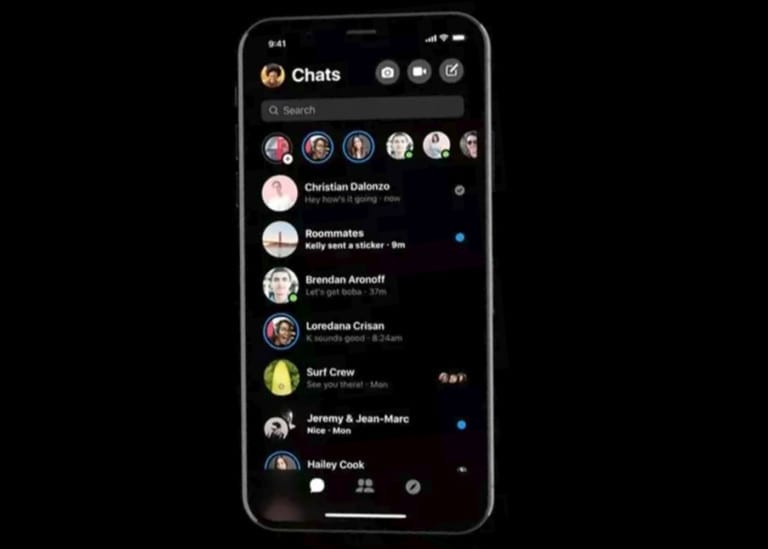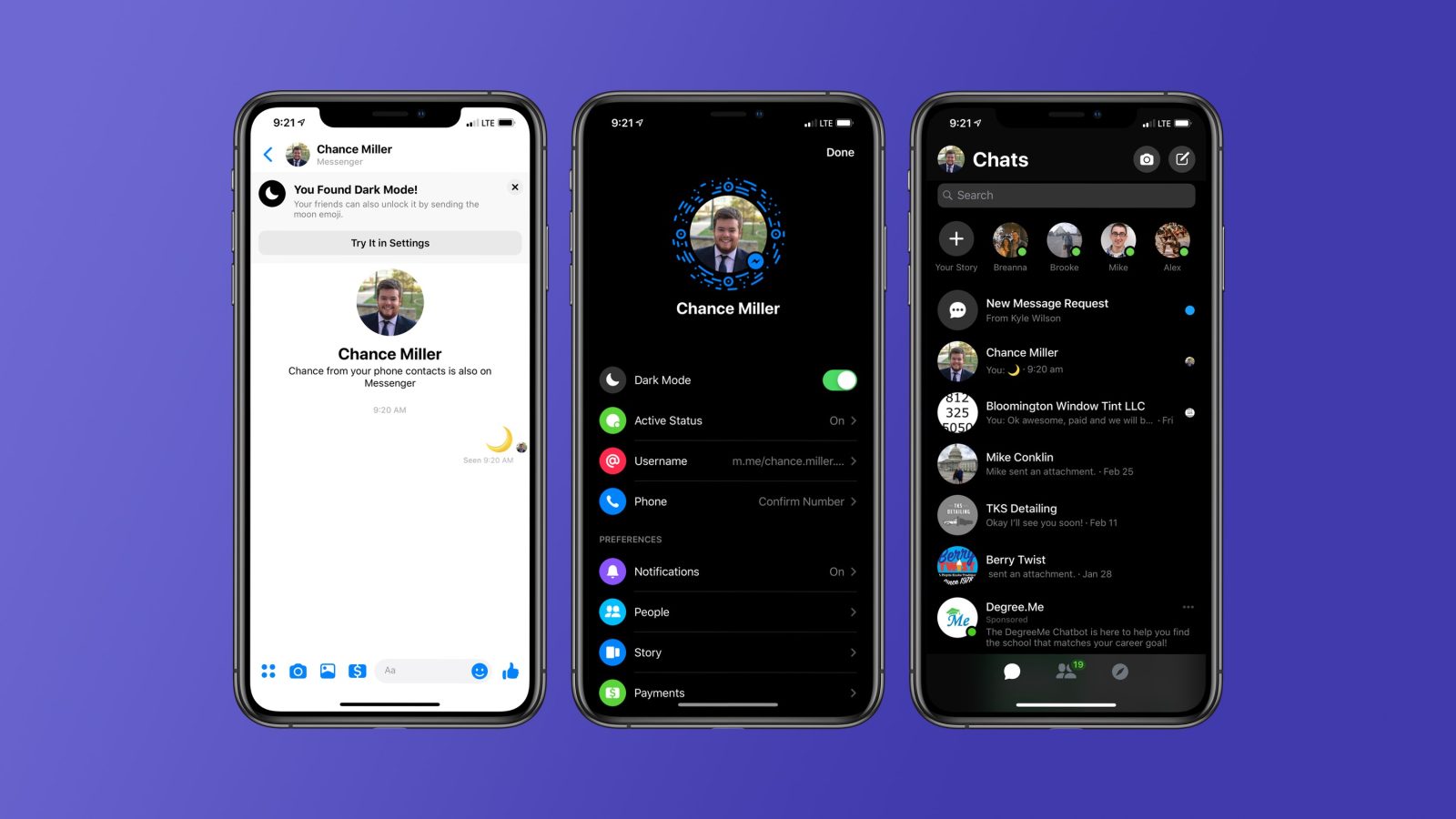Earlier this month, many users were finally able to activate the much-desired Dark Mode on Facebook Messenger. However, to do so it took a little trick, which did not work for everyone. Especially after receiving the new interface (extremely white), users began to get frustrated at not being able to activate the night mode.
Now, good news finally comes. The Dark Mode for Facebook Messenger is now available to everyone and is very easy to activate. To do this, simply load in your profile photo, and you will immediately see the option to activate Dark Mode.
With the global arrival of this mode for Messenger, the question remains whether the remaining applications belonging to Facebook will also receive this mode soon. There are no clues yet, but certainly, Dark Mode for Instagram and Facebook would be more than welcome. As far as WhatsApp is concerned, we have been talking about the arrival of this mode for some time.
Everyone wants Dark Mode. But is it that important?
The Dark Mode ‘fever’ began during the second half of last year. From one moment to the next, all the more prominent applications began to implement or develop this darker mode for their interfaces. It was not to my surprise that this type of interface became extremely popular.
Firstly, it becomes much less aggressive to the eyes, regardless of the ambient light in which the user is. In addition to what studies have already shown, it may also help a higher quality sleep when using the smartphone before going to bed.
Secondly, it has also been proven through several tests that smartphones with OLED screen can even have higher levels of autonomy when using the Dark Mode. However, it is important to emphasize that these modes even need to use a black tint (not dark gray) for this to happen.
Dark Mode will expand globally on Android smartphones with the arrival of the new Android Q. It has already been confirmed that you will arrive with an option to activate Dark Mode throughout your interface. Even having the ability to ‘force’ this mode into applications that do not support it natively.








